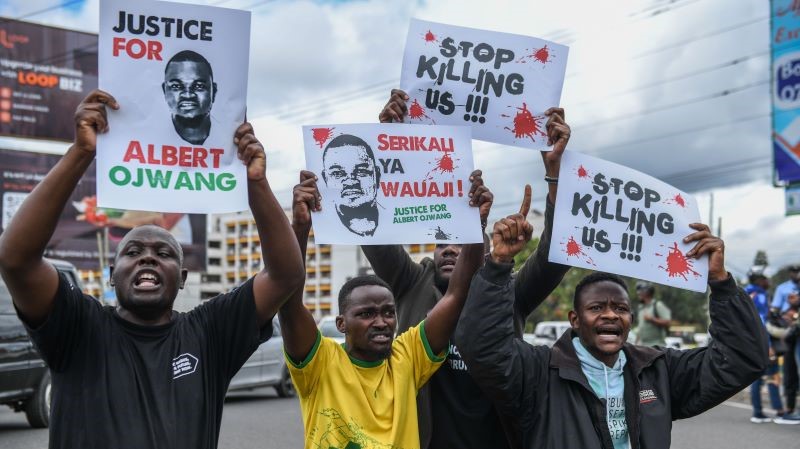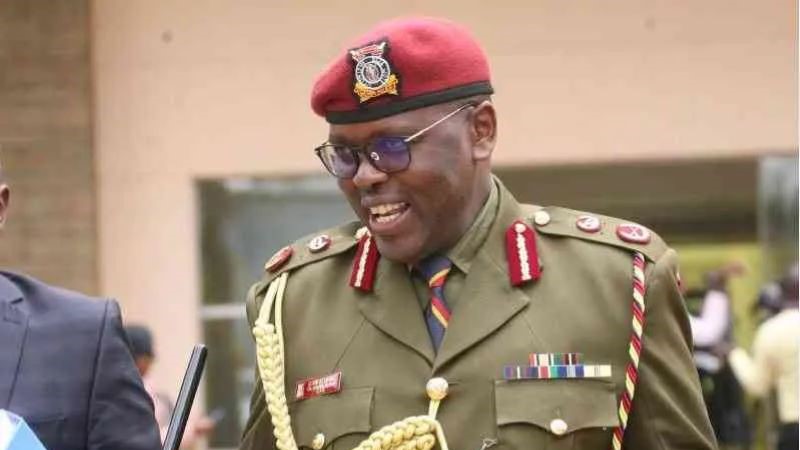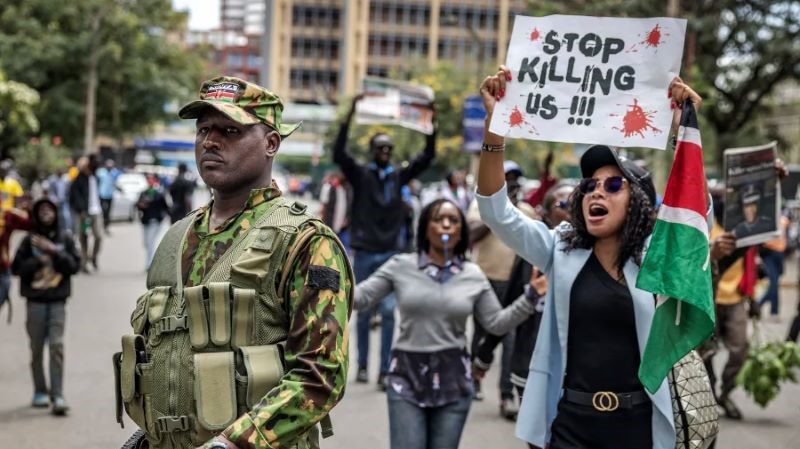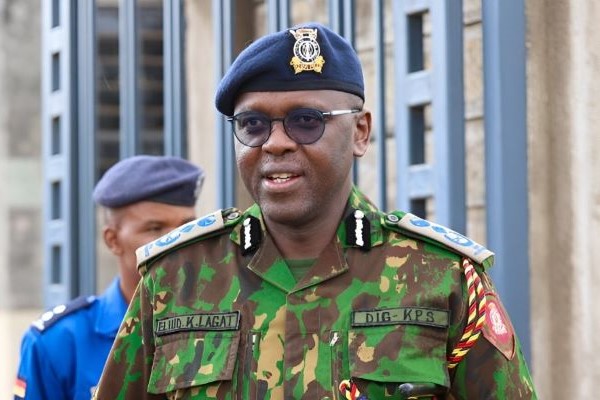The death of blogger Albert Ojwang while in police custody has sent shockwaves through Kenya, plunging the country into protests and placing the spotlight squarely on the Deputy Inspector General of Police, Eliud Kipkoech Lagat.
The high-ranking police official, who filed the complaint that led to Ojwang’s arrest, has now resigned amid growing public outrage, intensifying investigations, and fierce calls for accountability.
Ojwang was arrested on June 6 in western Kenya after allegedly publishing accusations online that implicated Lagat in corruption. He was transported more than 400 kilometers to Nairobi, where he died two days later inside a police cell.
Authorities initially claimed Ojwang had fatally injured himself by striking his head against a wall. However, a post-mortem report revealed more disturbing injuries to his head, signs of neck compression, and bruises across his body that pointed strongly to assault.
Recently, public reaction has been swift and unforgiving with demonstrations erupting in Nairobi and other cities, leading to several injuries and damage to property.
The protests were driven not only by anger over Ojwang’s death, but also by Kenya’s long-standing struggle with police brutality and impunity. Protesters demanded justice and an end to extrajudicial killings, with particular focus on high-ranking officers.
Amid the mounting pressure, Lagat issued a public statement on June 16, announcing his decision to step aside. “In view of the ongoing investigations, I have today opted to step aside from the office pending completion of investigations,” he stated.
He went on to express his willingness to assist with inquiries into what he described as “the unfortunate incident” and extended condolences to the bereaved family.

“I undertake to provide any support that may be required of me during the investigations… I offer immense condolences to the family of Mr. Albert Ojwang for their great loss,” a press statement read in part.
For many Kenyans, the statement was too little, too late. The delayed expression of sympathy and Lagat’s failure to acknowledge his own role as the complainant behind Ojwang’s arrest only fueled public scepticism.
Online, citizens questioned whether his resignation was motivated by remorse or simply an attempt to escape growing scrutiny.
The implications of Lagat’s resignation are both immediate and far-reaching. By stepping down, he relinquished one of the most powerful roles in Kenya’s security apparatus, effectively ending a long and influential policing career.
But more critically, his departure also stripped him of the institutional protections often afforded to senior officials.
This development could pave the way for criminal charges if investigators from the Independent Policing Oversight Authority (IPOA) and the Directorate of Public Prosecutions (DPP) establish culpability.
Inspector General Douglas Kanja confirmed to Senators that Ojwang’s arrest followed allegations he had made against Lagat concerning misuse of police authority and unexplained wealth.
Circulating images had shown Lagat in the company of senior traffic boss Joseph Chirchir, with captions linking them to a $2.6 million property in Dubai. The insinuations of corruption may have triggered the heavy-handed response that culminated in the blogger’s death.

So far, five individuals, two police officers and three civilians, have been arrested in connection with the case. Among them are Samson Talam, the officer in charge of Central Police Station where Ojwang died, and his colleague James Mukhwana.
The IPOA, now leading the investigation, has requested more time to thoroughly examine the events leading to the fatal incident.
Former Chief Justice David Maraga added his voice to the public outcry, insisting that Lagat must be prosecuted. “Resignation does not mean innocence,” he emphasized, echoing widespread sentiment that accountability must not stop at junior officers.
The controversy has reached the highest levels of government. President William Ruto addressed the matter publicly, assuring citizens that his administration is committed to justice.
“We will protect citizens from rogue police officers,” he stated, referencing the troubling parallels between Ojwang’s death and earlier cases of police violence, including last year’s abductions and killings during protests against a finance bill.
Ojwang’s father revealed that both President Ruto and opposition leader Raila Odinga had reached out to express their condolences, an indication of the national weight the case now carries.
As investigations continue, Lagat’s resignation marks a critical test for Kenya’s justice system and its willingness to hold powerful figures accountable.
The case has reignited conversations about police reform and public trust in law enforcement. While stepping down from office may be a symbolic gesture, it has done little to silence calls for a full and transparent prosecution.
In the end, the tragedy of Albert Ojwang’s death underscores a grim reality, freedom of expression in Kenya can come at a fatal cost. Whether justice will prevail now depends on whether the institutions charged with uncovering the truth act with the integrity and courage that the moment demands.

